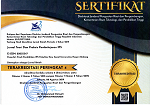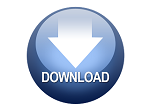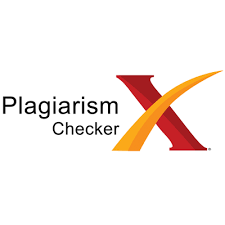Pengembangan pembelajaran blended learning pada generasi Z
Abstract
Every generation has beliefs, values, cultures, perspectives, interests, and different skills for life and work. The generation born in the early 2000s when the rapid development of such technology referred to as generation-z or net generation. Characters of this generation is very sensitive to technology and communication, meaning they have an advantage in the field of information and knowledge development. While the educators who were born in an earlier era are still not familiar with it so that educators often claimed to be "clueless" (stuttering technology). To address this need no new innovations in the learning process so that it complies with these characters. Combines conventional learning with communication media such as whatsapp and google drive is one easy solution social studies lesson on the generation-z. Learners who are accustomed to communicate using social networks can access the material and lesson plans that have been prepared with structured each meeting. So that they can read or prepare questions before the learning begins. The proportion of the use of e-learning in this study reached 35% so that it can be summed up as learning blended learning. This learning to stand on its information technology infrastructure and can be done anytime and anywhere. So learning blended learning has characteristics that are open, flexible, and can occur anywhere.
Keywords: Generation Z and blended learning
Full Text:
PDFReferences
Felder, R.M., and Soloman, B.A. 1993. Learning styles and strategies.
Gagne, R.M, Briggs, L.J and Wager, W.W. 1992. Principles of instructional design. Fort Worth, TX: Harcourt Brace Jovanovich, Publishers
Kaye Shelton and George Saltsman. 2007. Using the ADDIE Model for Teaching Online. IDEA GRUP PUBLISHING. Paper
dipublikasikan dalam International Journal of Information and Comunication Technology Education.
Kemendikbud. 2013. Pedoman Umum Pembelajaran - Lampiran IV - Peraturan Menteri Pendidikan Dan Kebudayaan Republik Indonesia Nomor 81a Tahun 2013 Tentang Implementasi Kurikulum
Musyarofah, Umi Wahidatun. 2014. Pendidikan di Indonesia Gagal Move On. Paper Pengembangan Karya Ilmiah, Oktober
Sukendah. 2013. Pengembangan Aplikasi Multimedia Pengenalan Pemanasan Global dan Solusinya Menggunakan Pendekatan ADDIE. Makalah dipresentasikan di Seminar
Nasional Sistem Informasi Indonesia 2-4 Desember 2013.
Suyono & Hariyanto. 2011. Belajar dan Pembelajaran. Bandung: Rosda.
Uno, B. Hamzah. 2011. Model Pembelajaran. Jakarta: Bumi Aksara.
Refbacks
- There are currently no refbacks.
Editorial and Administration Office:
This Journal is published by Prodi Pendidikan IPS, Fakultas Ilmu Sosial, Universitas Negeri Malang
Semarang St. No. 5 Building I3-102 65145.
Phone. (0341) 551312. line. 376 (19)
Homepage: http://journal2.um.ac.id/index.php/jtppips/index
email: jtp2ips.journal@um.ac.id
JTP2IPS INDEXED BY:
e-ISSN 2503-5347
ISSN 2503-1201
JTP2IPS is licensed by CC BY 4.0.










